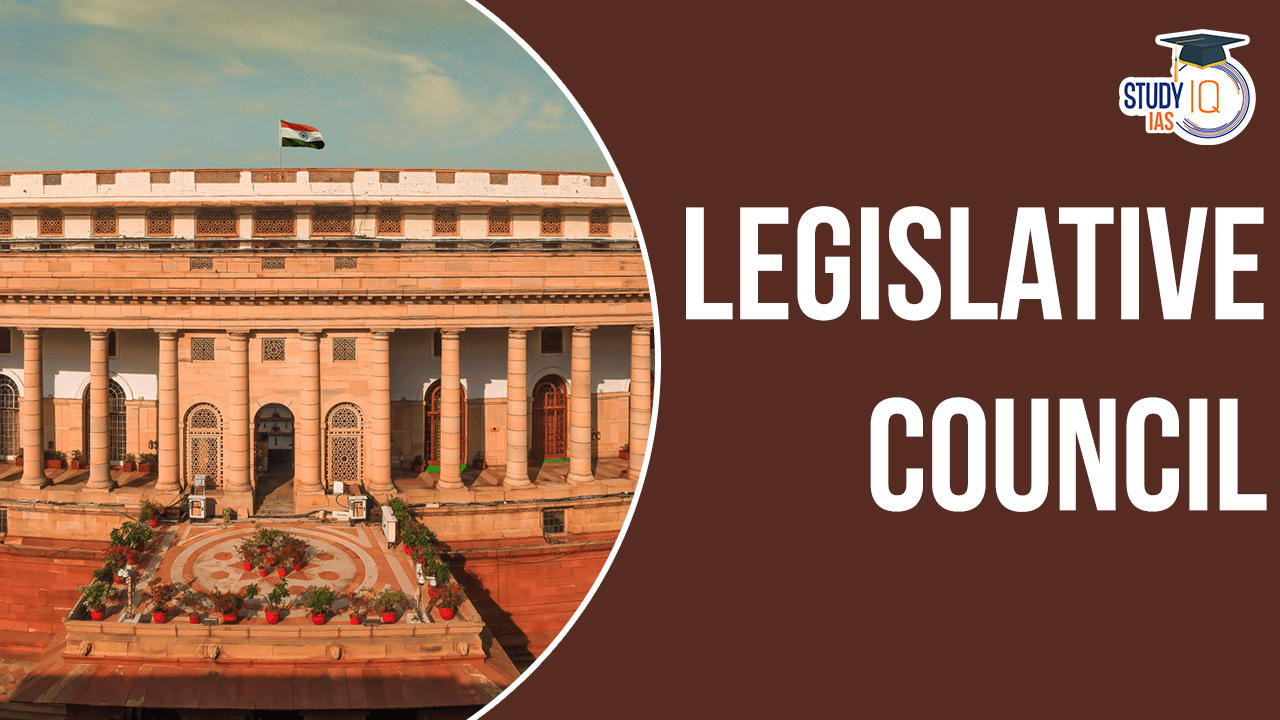Table of Contents
Legislative Council
Within the Indian government, the Legislative Council is a deliberative body with limited legislative authority. A permanent body cannot be disbanded, but every two years, one-third of its members leave. It is the state legislature’s upper house. The Legislative Council is also known as the Vidhan Parishad in India.
The Legislative Council is an important part of Indian Polity which an important subject in UPSC Syllabus. Students can also go for UPSC Mock Test to get more accuracy in their preparations.
Legislative Council Meaning
India’s Legislative Council is a permanent group of people that participates in the enactment of laws. Members of the state legislatures make up this upper house of India’s bicameral legislature. It consists of members who are appointed, members who are chosen by state legislatures, and members who are elected by municipal bodies.
The Legislative Council is the name of India’s parliament’s upper house. It is a permanent body with a maximum of 250 members, of which one-third are chosen by the State Legislative Assembly members and the remaining members in accordance with the guidelines that the Parliament periodically sets forth. During their six-year terms, a third of the members of the Legislative Council retire every two years.
The Legislative Council’s members elect the Chairman and Deputy Chairman. Having the exception of money bills, the Legislative Council is a deliberative body having the authority to discuss, approve, and propose amendments to laws approved by the Legislative Assembly.
Legislative Council Formation
The Indian parliament is composed of two houses. States may establish a Legislative Council in addition to the Legislative Assembly, just as Parliament has two Houses, per Article 169 of the Constitution. Six states, Andhra Pradesh, Telangana, Uttar Pradesh, Bihar, Maharashtra, and Karnataka, have a legislative council.
In 2020, the Andhra Pradesh Legislative Assembly accepted a resolution to dissolve the Legislative Council. To legally dissolve the council, this resolution still needs to be approved by the Indian Parliament. The Jammu and Kashmir Legislative Council was disbanded in 2019 as a result of the J&K Reorganization Bill, which reduced the State of J&K to the Union Territories of J&K and Ladakh.
Legislative Council Member
According to Article 171, a legislative council’s membership cannot exceed one-third of the entire membership of the Legislative Assembly. Additionally, it must have at least 40 members.
Legislative Council Composition
According to Article 171 of the Constitution, a state’s legislative council may consist of no fewer than 40 members and a maximum of one-third of the members of the State Assembly. The legislative council is a continuing chamber, similar to the Rajya Sabha, meaning it is a permanent institution that cannot be dissolved. Members of the Legislative Council (MLC) have a six-year term, and a third of them leave office every two years.
Legislative Council Election
The Assembly’s members elect one-third of the members. 1/3 by electorates made up of representatives of the state’s municipalities, district boards, and other local authorities. Teachers make up the electorate that chooses the 1/12th. Registered grads elect 1/12 of the total. The Governor proposes the other members from among people who have excelled in literature, science, art, the cooperative movement, and social service.
Legislative Council and Rajya Sabha
The Councils have a finite amount of legislative authority. Legislative Councils lack a constitutional mandate to shape non-financial legislation, in contrast to Rajya Sabha, which has considerable power to do so. The Council’s recommendations and revisions to the law are subject to override by the Assemblies. Again, MLCs are not permitted to cast ballots in presidential and vice presidential elections, unlike Rajya Sabha MPs. The Rajya Sabha is presided over by the Vice President, and the Council is presided over by a member of the Council.
Legislative Council Power
Legislative Councils lack the constitutional authority to enact non-financial legislation, in contrast to Rajya Sabha, which has considerable capacity to do so. Additionally, legislative assemblies have the authority to reject recommendations or changes made to legislation by the Council. Members of Legislative Councils are not permitted to vote in presidential and vice presidential elections, but Rajya Sabha MPs are. MLCs are likewise ineligible to cast ballots in the elections for Rajya Sabha members.
Legislative Council Role
The Legislative Council can make sure that people (such as artists, scientists, etc.) who might not be good candidates for office can nonetheless make a contribution to the legislative process. It can monitor the Legislative Assembly’s rash decisions. Students can read all the details related to UPSC by visiting the official website of StudyIQ UPSC Online Coaching.
























 WhatsApp
WhatsApp